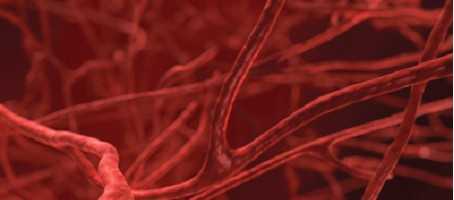A new study is currently examining the effect of a protein in reversing the endothelial dysfunction (blood vessel damage) that occurs in diabetes.
A dangerous consequence of diabetes is when dysfunction takes place of the single-cell layer that lines our blood vessels, which play a key role in glucose and insulin being transported.
High blood sugars can damage the blood vessels, leaving the endothelial lining inflamed and unable to dilate properly. This increases blood pressure and can lead to endothelial dysfunction.
PTP1B protein study
A study funded both by the Diabetic Complications Consortium of the National Institute of Diabetes and Digestive and Kidney Diseases suspect the PTP1B protein could be responsible for this dysfunction.
A major factor in vascular dysfunction that occurs from diabetes is reduced nitric oxide production by the endothelial cells lining the blood vessels.
Less nitric oxide increases blood flow turbulence, which serves to assist in laying a foundation for vascular disease.
The PTP1B protein is known to be increased in the fat, liver and muscles of people with diabetes, with researchers finding that upon inducing type 1 diabetes in mice without the protein, they did not experience endothelial dysfunction.
Increased PTP1B expression
“We know that diabetes increases PTP1B expression in all those tissues, the muscle, the liver, fat, and what we want to see now is if diabetes also increases PTP1B in endothelial cells and if that increased expression leads to the endothelial dysfunction” said Dr. Belin de Chantemele, a researcher from the Georgia Regents University.
Their findings also indicate that PTP1B inhibitors could be successful with diabetes and weight loss, with Dr Chantemele hoping these results will aid development of a highly targeted inhibitor.
However, drug companies are having trouble developing PTP1B inhibitors due to the side effects that emerge from blocking the protein. The side effects from PTP1B have been known to include blocking the action of insulin, which can lead to high blood sugar levels.
What's new on the forum? ⭐️
Get our free newsletters
Stay up to date with the latest news, research and breakthroughs.








